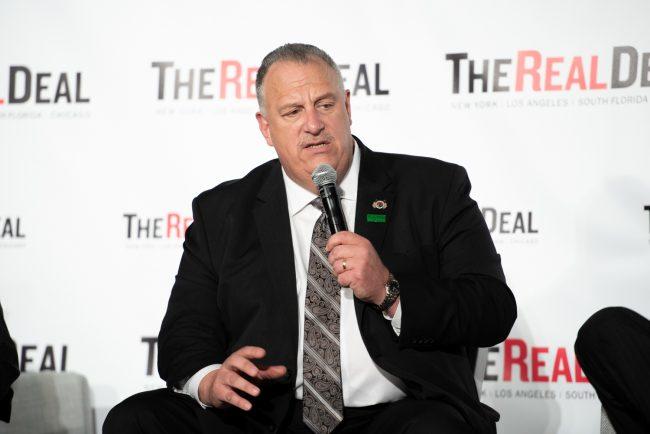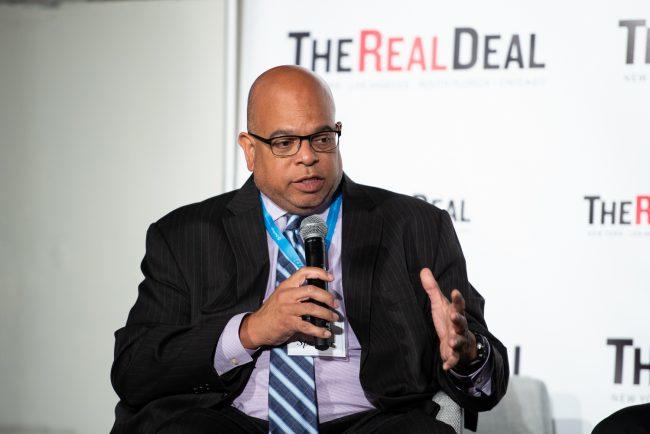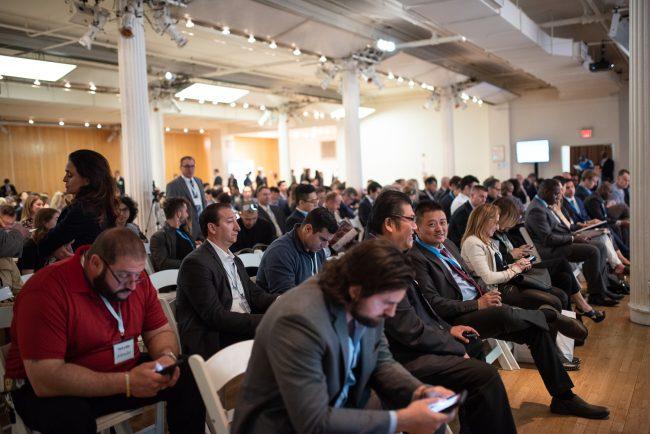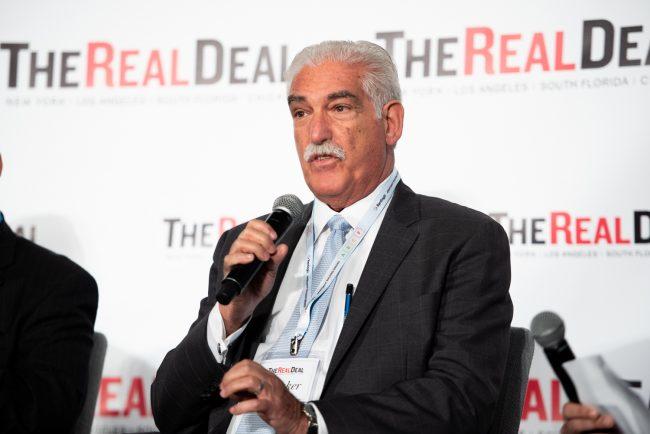Although nonunion labor continues to encroach on the New York market, the fight between unions and Related Companies at the Hudson Yards megadevelopment appears to be “an anomaly.”
Gary LaBarbera, president of the Building and Construction Trade Council of Greater New York, told an audience gathered for The Real Deal’s 11th annual New York Showcase on Monday that relations between developers and union groups remain strong despite the organization’s increasingly vitriolic dispute with Related.
The developer is suing LaBarbera and his organization over claims that the trade group inflated costs at Hudson Yards by $100 million. A second lawsuit accuses the BCTC of interfering with work at 50 Hudson Yards. Since last year, the BCTC has been protesting Related’s decision to use both union and nonunion on the second phase of the project. Just last week, the group held a massive union rally against Related in which Gov. Andrew Cuomo made an appearance.

Gary LaBarbera (Credit: Jhila Farzaneh for The Real Deal)
LaBarbera said on Monday that his organization was blindsided by the developer’s decision to exclude certain trades from the project.
“In this case, in our opinion, this was a major push by a major developer to really drive the open-shop model,” LaBarbera said. “All of a sudden it was this attack on certain trades.”
Still, the litigation is a symptom of a larger shift in the city. Nonunion companies have taken on more and more work, especially in the residential sector. LaBarbera said union construction is inherently safer and of a higher quality than nonunion, which is why many developers and contractors continue to hire union labor for high-rise Class A office buildings.

John Banks (Credit: Jhila Farzaneh for The Real Deal)
John Banks, president of the Real Estate Board of New York, disagreed.
“There’s been a shift in skill,” he said. “There’s not a big leap that you need to make to build a high-rise residential building to a high-rise commercial building.”
Banks added, “The fight is really over the margins.” While some trades have made changes to be more competitive with their nonunion counterparts — such as changing work rules or adding lower-paid positions on their job sites — others haven’t been as willing to come to the negotiation table.
Jay Badame, CEO of AECOM Tishman, said the biggest financial hurdle in hiring union labor is the required contribution to pension funds. He said the trades need to follow the private sector in contributing to pensions themselves.

The Real Deal’s 11th annual New York Showcase and Forum (Credit: Jhila Farzaneh for The Real Deal)
“It’s not the wage of the man,” he said. “It’s the benefits. It’s the work rules.”
He noted that these pension funds also sometimes contribute to political action committees that turn around and attack construction managers who hire nonunion labor.
“I’m paying you to use my money against me,” he said.
During the panel, LaBarbera emphasized the speakers’ mutual respect for each other, despite disagreements over the use of nonunion labor. Banks, who didn’t comment directly on Related’s lawsuits against LaBarbera, came to the union boss’ defense.
“Anyone who would impugn his integrity, doesn’t know the man,” he said.

Lou Coletti (Credit: Jhila Farzaneh for The Real Deal)
A spokesperson for Related took issued with LaBarbera’s statement about “mutual respect,” calling it “nothing short of hypocritical and in direct contrast with the expletive-filled tirade and the personal attacks from Mr. LaBarbera and others at his rally last week and in week’s past.”
“As one of the largest private employers of union labor in New York, we will continue to pursue trade labor agreements or agreements under existing collective bargaining agreements for future work, but we will not be coerced or bullied into entering an exclusive agreement with a party that has a demonstrated record of breaking its commitments and engaging in thug-like intimidation and harassment tactics,” said Related’s Joanna Rose.
Lou Coletti, president of the Building Trades Employers’ Association, noted that the tenor of recent fights between developers and unions isn’t the most effective way for trades to regain market share.
“That’s not a pathway to try to get us to where we want to go,” he said.
He then took out a piece of paper and read a quote by Winston Churchill. “Success is not final, failure is not fatal: it is the courage to continue that counts.”
